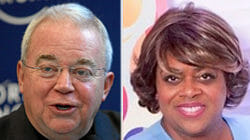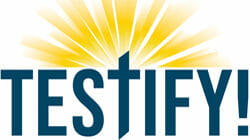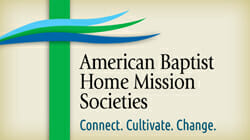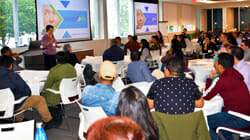Day 2 at Space for Grace
On Day 2 of Space for Grace in Philadelphia, attendees were met with a variety of inspirational experiences from thought-provoking workshops to dynamic worship.
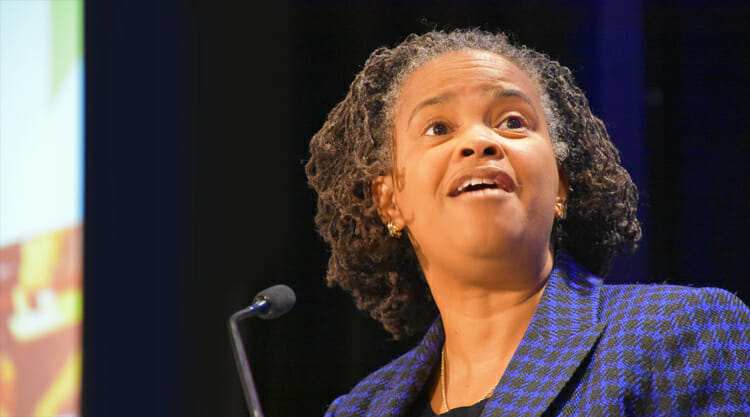
In her morning homily, the Rev. Dr. Leslie D. Callahan, pastor of St. Paul’s Baptist Church, Philadelphia, said that God chooses to speak to those who challenge our assumptions, such as the poor. She pointed to the Bible’s women who were disbelieved when they told the apostles of Christ’s resurrection. “For those of you who are on the margins, keep telling your incredible story. For those who have moved from the margins to places of power, remember: It may not be you who gets the story first,” she said. “For all of us, let’s listen better so we may hear God.”
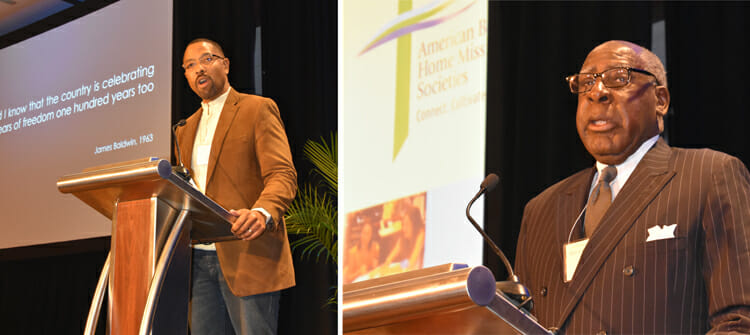
During morning worship, the Rev. Dr. Corey D.B. Walker (above left), vice president, dean and professor of Religion and Society at Samuel DeWitt Proctor School of Theology, Virginia Union University, discussed the Matthew 18 imperative to become like children–including overcoming hierarchies and loving people of all races–to enter heaven. “Unless you change and become like little children—that is the challenge,” he said. “It is not ‘Let me add or sprinkle some black on it.’ You cannot just say, ‘Black lives matter.’ It’s more than a hashtag or a tweet. It is about fundamental change.”
“It is our desire that if you brought your thirst, it will soothe as never before,” said the Rev. Dr. Clifford I. Johnson (above right), president of American Baptist Home Mission Societies’ (ABHMS) board of directors and pastor of Shiloh Baptist Church, Wilmington, Del. “This will be accomplished as you spend your time experiencing the presence of God, as you connect, as you cultivate and return home more determined than ever to bring about change.”
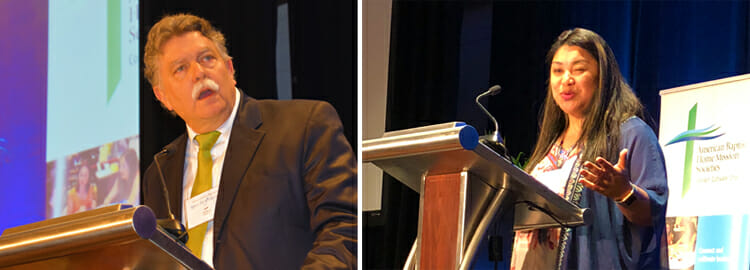
“If there has ever been a need for a little bit of space for grace, it is now,” said the Rev. Dr. C. Jeff Woods (above left), acting general secretary of American Baptist Churches USA, during remarks at morning worship.
“Whether we intend it or not, we have to own the impact of our behavior and words,” said the Rev. Dr. Marie Onwubuariri (above right), executive minister of American Baptist Churches of Wisconsin, during her workshop “It Matters…Brave Conversations about Race.”
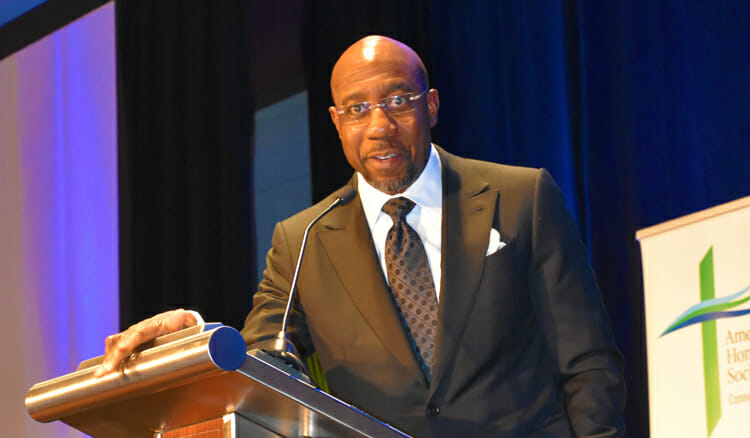
During evening worship, the Rev. Dr. Raphael Warnock, senior pastor of Ebenezer Baptist Church, Atlanta, preached about the connection among music, memory and emotion. He said, “You can make music in a messed-up world if you know who you are. You can make music in a messed-up world if you know whose you are. And you can make music in a messed-up world if you know what God has already done.”
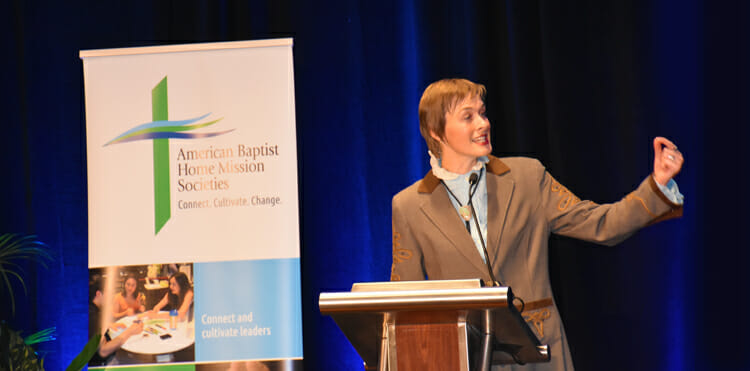
During the evening homily, the Rev. Jamie P. Washam, ABHMS board member and pastor of First Baptist Church in America, Providence, R.I., spoke about forgiveness. “If you don’t forgive others you will not receive forgiveness. All of us have been hurt. And all of us have been hurt by others,” she said. “The need to forgive and be forgiven simply means that we are not perfect. You don’t have to be Sigmund Freud or Dr. Frasier Crane to understand we live in a world filled with people who are in pain.”
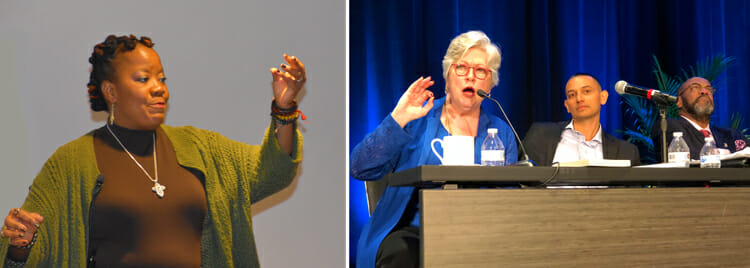
During the “Sacred Resistance: Creating and Supporting Spiritual Changemakers” workshop, the Rev. Dr. Diane J. Johnson (above left), founder and CEO of Mmapeu Management Consulting, Oakland, Calif., asked participants to recall personal spiritual practices through which they find support. “Those of us doing spiritual caretaking, our own selves are usually last on the list,” she said.
The LGBTQ community was among the subjects discussed during “Critical Challenges and Opportunities Facing Religious Leaders, Theological Education and The Church” (above right) by panelists Dr. Molly T. Marshall, president of Central Baptist Theological Seminary, Shawnee, Kan.; Dr. Marvin A. McMickle, president of Colgate Rochester (N.Y.) Crozer Divinity School; and the Rev. Adam Taylor, executive director of Sojourners. Said McMickle: “I am not LBGTQ, but I sure am ‘A’—an ally and advocate.”

“We have plenty of processes and solutions [to free us from fear of the other], but if we don’t deal with our emotions and pain, no process or solutions are going to work,” said the Rev. Douglas Avilesbernal (above left), executive minister of the Evergreen Association of American Baptist Churches, during his “Healing from Unnamed Fear of the Other” workshop.
During his “Improv Your Leadership” workshop, the Rev. Dr. Tom Wiles (above right), executive minister of American Baptist Churches of Rhode Island, pointed out that improvisation requires saying “yes,” and saying “yes, and” as well as having contextual awareness and a sense of direction.


